Discover the work of the Kath Duncan Equality And Civil Rights Network in Lewisham and beyond
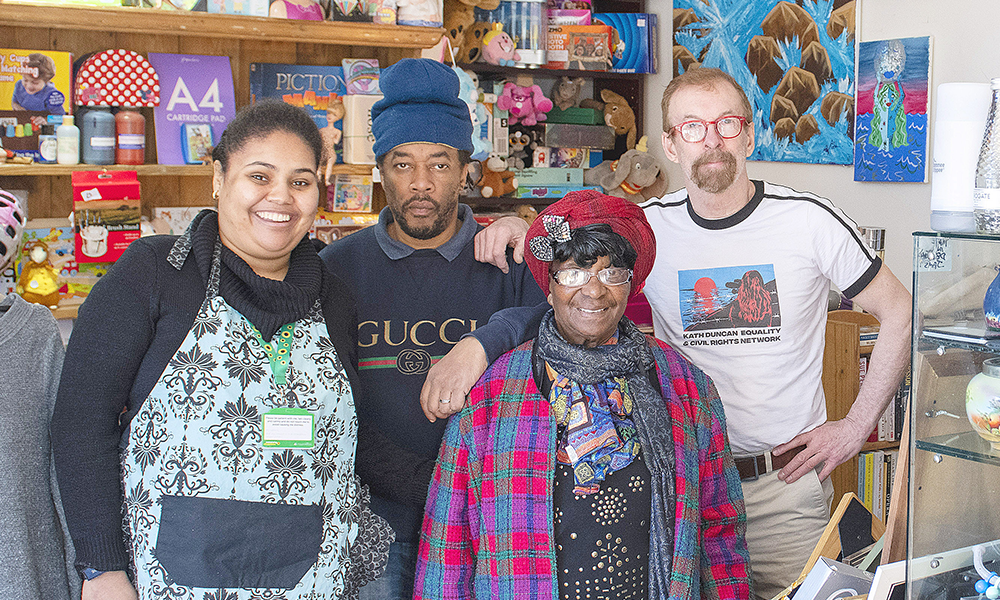
Subscribe to Wharf Life’s weekly newsletter here
It may look like just another charity shop but Kath’s Place in Deptford is bigger on the inside.
Step through the Tardis-like entrance and you will find a growing mechanism for social change.
Opened in October 2020 during the pandemic, the shop in Friendly Street houses the We Care food bank, a food pantry, a book swap library, a baby bank and a vintage clothes shop as well as serving tea and coffee and hot meals to take away for those in need.
Money from the sale of second-hand goods is used to feed the 3,000 people who use its services and the hub provides support for anyone who needs it, including the homeless, single parents, refugees and low-income families.
Word of its work has spread as far as Japan and Chile and inspired others to open similar operations.
Co-founder Ray Barron-Woolford believes its method of support will spread worldwide, as food demand and energy costs increase.
“What we do isn’t about creating dependency, it is about supporting people,” he said.
“We do debt counselling, help if their fridge breaks down, if they need school uniforms. If they are homeless and have been given a flat, we get volunteers to help decorate.”
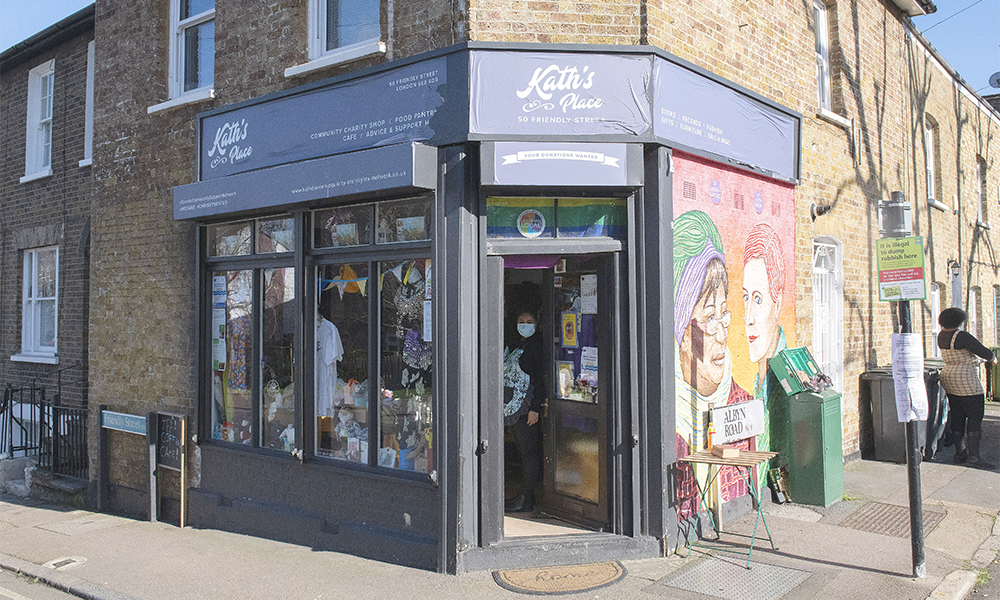
All the projects are run by a team of 200 volunteers, headed up by Ray, as co-founder of We Care Community Hub and CEO of the Kath Duncan Equality And Civil Rights Network.
He draws no salary and puts all profit back into the organisation.
“My work isn’t about me, it’s about the people we help,” said the Deptford resident.
“It’s about empowering people to help themselves when councils and governments fail.
“It is about generating income through our work that self-funds all our different projects, so we don’t have to spend all our time fundraising and so people don’t feel they are getting something for nothing or accepting charity.”
We Care Community Hub achieved charity status last year, but doesn’t receive any funding and has to buy almost everything it distributes.
It receives about five tonnes of food a year through the Fair Share scheme from supermarkets, but Ray said that was only 10% of what it needed.
He visits up to 15 different supermarkets daily to buy the rest at the cheapest prices.
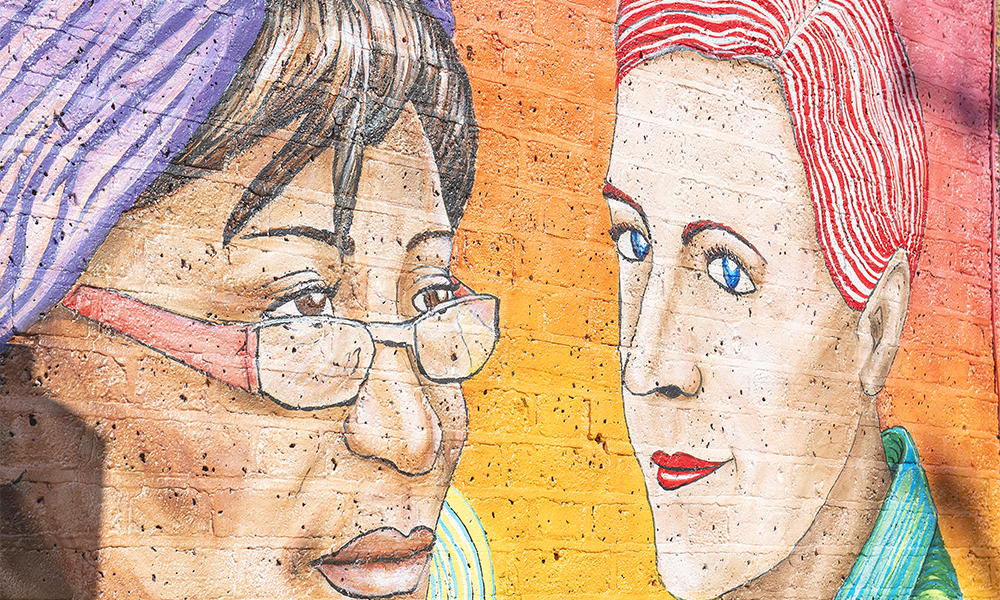
“When you are buying in volume, saving a few pence on each item, it adds up to a whole other item you can buy for someone,” he said.
The We Care food bank is by referral only, as it already helps people from eight boroughs and cannot cope with more.
The We Care food pantry has 1,374 member households, including 784 children and 78 pets.
Members pay £1 a year and then £5 every time they access it and can have packages tailored to their requirements, such as vegan or Halal.
“It’s tragic we have to exist,” said Ray. ”We are all uncomfortable with it. But if we didn’t exist people would be dead.”
Ray understands because he has lived it. “I was a gay, homeless man who went through the care system and got lucky in property and that made me rich,” he said.
“But I have never forgotten all those people who helped me out from when I was poor and living on the streets of London. So I’m paying back for all those people who had faith in me.”
Ray lived on the streets of London for 18 months before making his fortune running estate agency Housemartins in Surrey Quays, specialising in housing gay men. But he walked away after one eye-opening exchange in 2014.
“I was coming out of my office and saw two men in suits going through the bins on the council estate opposite,” he said. “I asked why and they said: ‘We have jobs so we can’t get any benefit, but it’s five weeks until we get paid and we can’t get a loan’.
“I thought it was madness so that’s when I linked up with Barbara Raymond and decided we had to do something about it.
“We set up We Care at that moment and that led me to selling my company and becoming totally committed to tackling poverty as a full-time activist.”
Barbara, 86, had arrived in London as part of the Windrush generation and, in 1976, opened what Ray described as the “first food bank” from her home in New Cross, which still runs today.
She and Ray became instant friends and today she chairs We Care Community Hub.
The initial food bank ran from 2014-16 at a base in Deptford until the rent went from £7,500 to £32,500 and it had to shut.
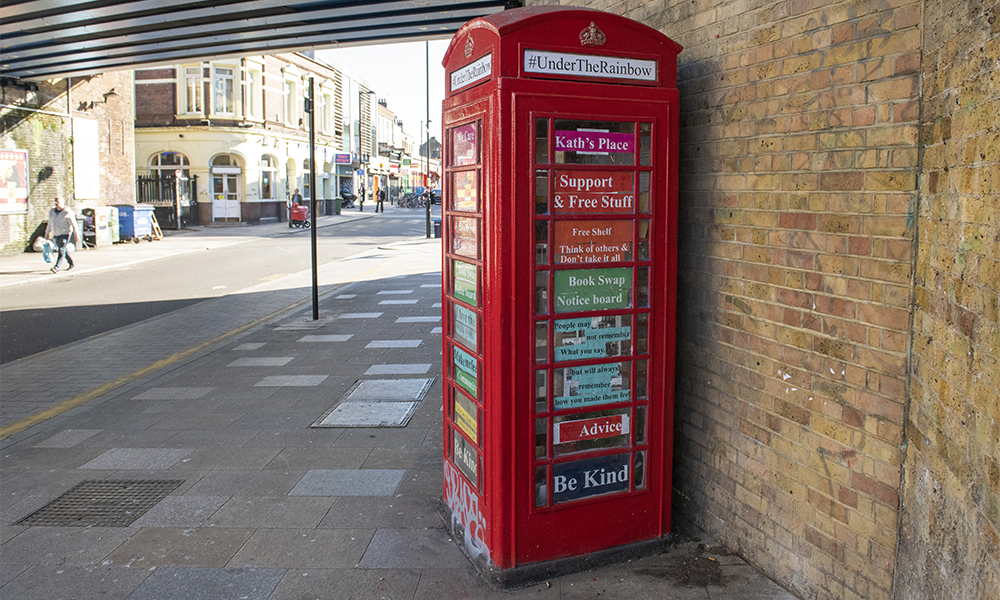
“We couldn’t get charity status at the time because you needed cash to have a charity registration,” said Ray.
“So we went underground and were running the business from people’s homes in the holidays and at Christmas.
“Then Covid hit and everyone was panicking. MPs vanished, the council went into lockdown and we had elderly people in their homes that couldn’t leave and people couldn’t get to them to feed them.
“We set up the buddy system that we learned through Aids in the 1970s, and that allowed us to feed 5,000 people.
“Then someone who we had helped died and left us the £5,000 we needed to get the charity registration.
“It was sad we lost that person, but they ensured our work could continue.”
Kath’s Place opened in October 2020 after a coffee shop went bust and Ray put up the money to rent the space.
He named it after former Deptford resident Kath Duncan who he discovered he had a startling affinity with.
“She is the most important civil rights activist of the past 100 years, lived in Deptford and was gay like me,” said Ray.
“We wanted to carry on her work. It’s important to us everyone knows about her.”
A mural was unveiled on the side of the charity shop for International Women’s Day depicting Kath and Barbara, who Ray said were “extraordinary women”.
“The mural is about instilling pride in our community and hopefully inspiring other women and showing that all of them deserve recognition,” he added.
It has not been touched by graffiti and neither has the shop or a disused telephone box that volunteers recently transformed into a 24/7 community hub.
Situated under the rainbow bridge in Deptford High Street, it is for anyone who needs it and contains information on local support, a book swap library and access to a scheme providing free tea and coffee.
“When you are in crisis you don’t know where to start,” said Ray. “Most people go online and what they find is national or closed.
“Having a space which is only local organisations, with their opening times, where they’re based and how you access them, is quite unique.
“When we opened the phone box everyone said it would be trashed. We knew it wouldn’t be.
“We are already the only place in Lewisham with black shutters because all the others have been covered in graffiti.
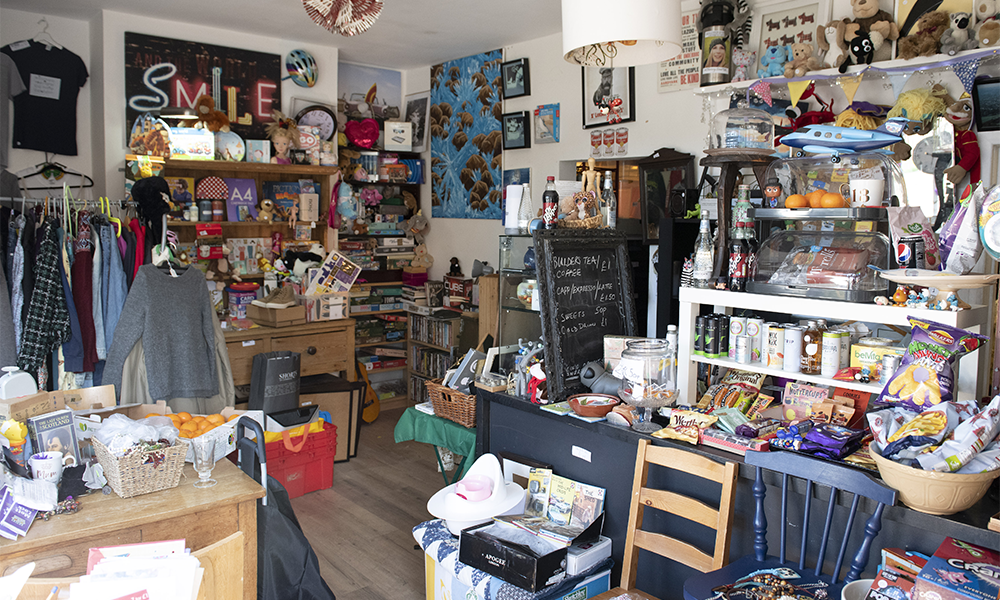
“Ours isn’t, because our work is so cutting edge and inclusive that everyone knows someone who uses our projects and wouldn’t do anything to undermine our work.”
It’s not an idle boast. Ray’s mission to change our society has travelled not just through the borough but across the world.
A Kath’s Place hub has opened in Marbella with plans for more in Toronto, New York, Los Angeles, Venezuela and Chile and he has been interviewed by Japanese television about the phone box.
“Instead of a McDonalds on every high street, there should be a Kath’s Place,” said Ray. “We are in talks to open in Redhill, Brighton, Liverpool and Kirkcaldy.
“Demand for this support is only going to increase because, even if you are working and have a good income, energy prices are going through the roof.
“Climate change will undermine the food supply, so access to food and water is going to be a huge issue.
“The need for projects like ours to come up with sustainable models that aren’t dependent on handouts is the way forward.
“I think the Kath Duncan Network will be as famous in 10 years as Oxfam because what we do is unique and we haven’t forgotten what we are about.
“Our charity shop is cheap, which is how they are meant to be.”
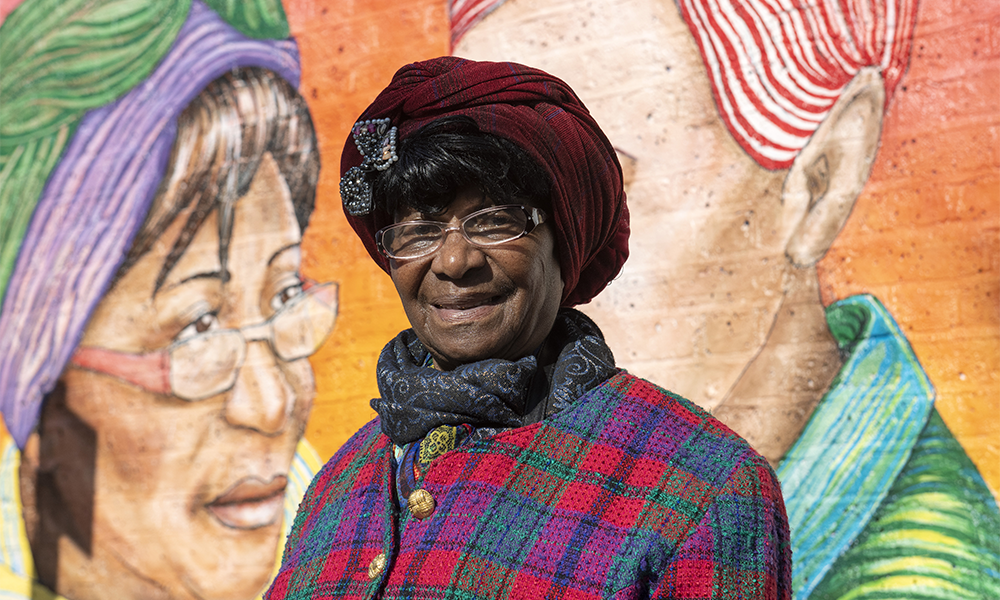
Ray has written about the work he does in the books Food Bank Britain and Last Queen Of Scotland, a biography of Kath Duncan and play Liberty, which has been optioned by Netflix.
He also found volunteers to make short film, Feeding Lewisham, during lockdown, which he said won 15 international awards and helped inspire people across the globe to copy the charity’s work.
But Ray said there would always be opposition. “A woman came in recently and said: ‘I’ve just paid £1.2million for a house nearby and don’t expect to have a foodbank as a my neighbour. When can you move?’.
“I told her I had been here long before her and we’re not going anywhere. We still get that kind of bigotry and ignorance.
“You have to be realistic and accept that there are people who are horrible.
“But there are also extraordinary people who do extraordinary things – Lewisham is a really empowering place to come from.”
Read more: How JP Morgan is boosting social mobility with The Sutton Trust



